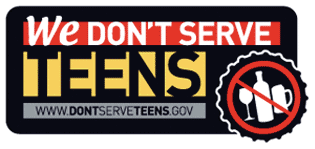Guidance Documents: Alcohol
For those under age 21, alcohol consumption is illegal and poses significant health and safety risks. For consumers ages 21 and over, a competitive alcohol marketplace provides benefits in the form of increased choice and price competition. In exercising its jurisdiction over alcohol marketing, the FTC keeps in mind the interests of both children and adults. The agency uses a variety of tools to accomplish these goals.
The Commission addresses concerns about the effects of alcohol marketing on youth by conducting law enforcement investigations; promoting effective industry self-regulation of marketing practices; educating consumers about teens and drinking; and coordinating with other federal agencies. The Commission addresses the interests of responsible adults in a competitive alcohol marketplace by: studying effects of regulations on the alcohol marketplace; preventing anti-competitive effects from alcohol supplier mergers; and promoting effective disclosures on alcohol labels.
Consumer Protection Law Enforcement
In appropriate circumstances, the Commission investigates and prosecute cases to halt deceptive or unfair alcohol advertising.
- Allied Domecq Spirits and Wine Americas, Inc.
- Beck’s North America, Inc.
- Canandaigua Wine Co.
Promoting Effective Self-Regulation To Protect Youth
The Commission has published two reports on studies of alcohol industry self-regulation designed to reduce the likelihood that persons under the legal drinking age are the target of alcohol advertising. A third study is currently underway.
- 2007 Alcohol Report – information collection
- 2003 Alcohol Report
- 1999 Alcohol Report
Consumer Education To Reduce Teens’ Easy Access to Alcohol
The We Don’t Serve Teens program provides parents and others with tools and information to reduce teen drinking and related harm.
Working With Other Federal Agencies
The FTC is a member of the Interagency Coordinating Committee to Reduce Alcohol Abuse (“ICCPUD”). ICCPUD facilitates coordination among the federal agencies that play a role in reducing underage drinking, to prevent alcohol-related harm. Visit stopalcoholabuse.gov for more information.
Studying Competitive Effects of Alcohol Market Regulation
Statutes and regulations can have unintended adverse effects on commerce, reducing consumer choice and increasing prices. The Commission studies the potential barriers to commerce caused by such laws and rules. When appropriate, the FTC comments on the potential competitive effects of proposed legislation.
Preventing Anti-Competitive Effects from Alcohol Supplier Mergers
Mergers can reduce the likelihood of effective competition between co-owned brands in a particular category (such as premium rum). The Commission reviews proposed mergers and, when appropriate, brings action.
- In the Matter of Diageo PLC and Vivendi Universal S.A.
- In the Matter of Guinness PLC, Grand Metropolitan PLC, and Diageo PLC
Promoting Better Disclosures on Alcohol Labels
Regulations that permit or require labeling about important product attributes can facilitate competition. The FTC has recommended that the Department of Treasury modify its regulations to require better disclosures on alcohol labels, including disclosure of the amount of alcohol and calories per serving.


